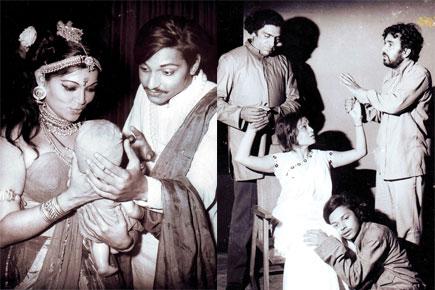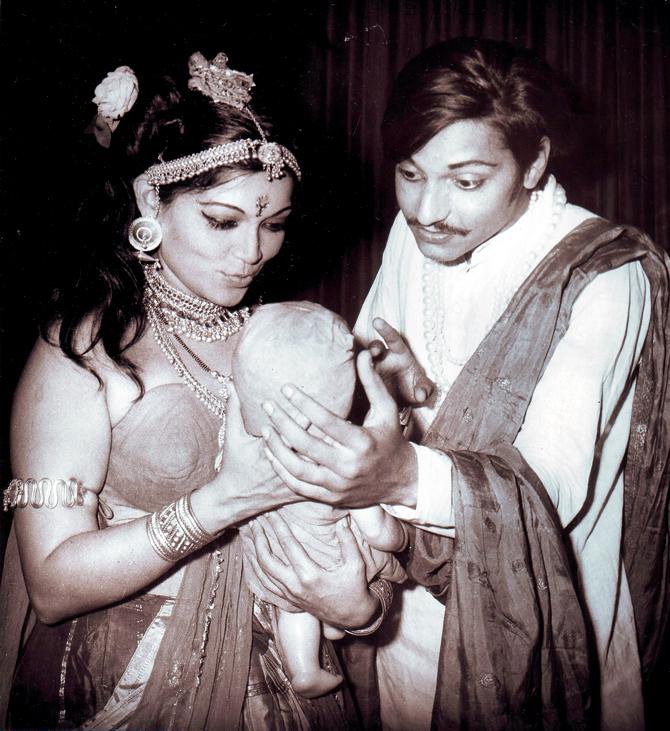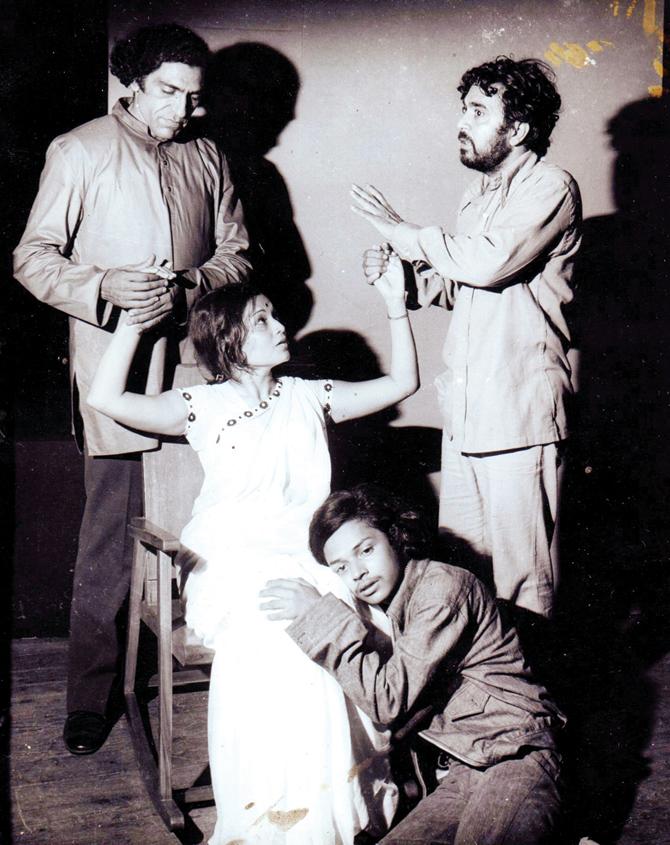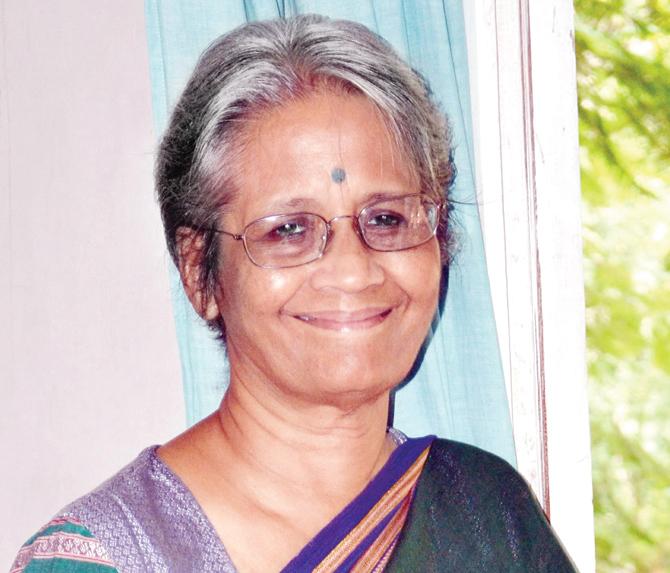Where Girish Karnad first learnt that lights could be brightened and dimmed like a fan. Insider memories of three forgotten theatre spaces in a new book edited by theatre historian Shanta Gokhale

Sunila Pradhan and Amol Palekar in Girish Karnad's Hayavadana directed by Satyadev Dubey
As Shanta Gokhale steps out of a play, we hustle around in search of a quiet nook in the alfresco setting of Prithvi Café. It is a mid-week evening, and the low tables are brimming with millennials while flautist Suhas Joshi pipes away melodies under a tree as usual.
Gokhale deftly suggests a donuts-and-coffee place as an alternative and, as we settle down, she extends a mild disclaimer, "The book is a joint-effort of five years between me, 12 interviewers, the sponsor Ashok Kulkarni and Sunil Shanbag." Gokhale, a prominent theatre historian, is the editor of The Scenes We Made, a new 'oral history' of experimental theatre in the city (published by Speaking Tiger), and our conversation picks up from where the book ends – Prithvi Theatre, and Jyoti Dogra's thoroughly moving monoact Notes on Chai, which Gokhale has just finished watching.

Sunila Pradhan and Amol Palekar in Girish Karnad's Hayavadana directed by Satyadev Dubey
Before Prithvi Theatre and the National Centre for Performing Arts (NCPA), there were Bhulabhai Desai Memorial Institute, Walchand Terrace and Chhabildas School Hall. If these names, full of regional flair, do not ring a bell, it is because all these spaces, which once supported the greats of Indian theatre, have closed down. With threadbare facilities, these were playgrounds — factory-like even — where Amol Palekar directed plays to audiences leaning against pillows, and where rehearsals were conducted at daily rentals of a rupee. At Chhabildas in Dadar, theatre performances vied for primetime attention along with the popular film-music show Chhayageet playing in neighbouring houses and audiences peered into homes to take note of match scores during a play's interval. It was the iron age of theatre in Mumbai.

(Left to right): Amrish Puri, Sunila Pradhan, Satyadev Dubey and Sunil Shanbag (kneeling) in the Hindi translation of Mahesh Elkunchwar’s Garbo, directed by Dubey. Pics/Courtesy Theatre Unit Archives
Gokhale's editorial acumen shapes diverse theatre experiences between 1960 — 90 into four parts to spot the defining moments. "When we think of a history, we think of the big events — wars, coronations, dethronement. The same is true of theatre. But there are a whole lot of people and events that don't make it to the big story," she explains.
It is precisely these insider stories that we are made privy to, a tête-à-tête over chai that could make you chuckle. Satyadev Dubey recounts of Walchand Terrace, where his Hindi theatre grew in bounds and leaps, "For them it was like a dharamshala…One of the rules was, stub your cigarettes on the floor because the next morning, or the same night, all the actors would clean the floor. That was an important part of the ritual."

Shanta Gokhale
But, memories are fallible. "We pieced together the conversations to provide a complex picture. We had to juxtapose memories and reality," says Gokhale. She is quick to point out discrepancies in these re-tellings, such as in the case of Soli Batliwala, the manager-trustee of the Bhulabhai Desai Memorial Institute. Prafulla Dahanukar remembers him as a benevolent patron who helped a peon become a sculptor. Akbar Padamsee, on the other hand, has a different take – Batliwala thwarted the peon Raman Patel from embracing success as an artist. Patel married a Swiss woman, got schooled abroad in sculpting, and lost his innate artistic flair eventually. The conversations, which have also been filmed, will be cut to a 30-minute film under the direction of Shanbag, and will be shown at a second launch of the book at Prithvi on December 24, alongside Satyadev Dubey's fourth death anniversary.
The Scenes We Made, thankfully, does not play it safe. Its subjects reminisce frankly and freely, not just about theatrical foibles, but about each other's personalities and egos even. "People understood the richness gained through dialogue and other viewpoints. Directors were questioned if they tampered with the script too much and the audience put pressure on theatre,"
says Gokhale.
But the editor does not lament the passing away of these experimental spaces, saying, "Our generation believed in dialogue. We were immensely enriched by the debates we had about important issues in theatre like how far a director should go in changing the playwright's words and vision." Moreover, the book traces the northward graph of theatre in the city, the easy informality that Prithvi exudes as opposed to the forbidding location and architecture of NCPA. The city, she says, can no longer have central locations for theatre. Instead, pockets have emerged.
So, the next time we book our prized vantage seats for Motley's Waiting for Godot, let's try and recall what Naseeruddin Shah, a product of the National School of Drama, recounts in the book of Chhabildas, a bare space with old halogen lights, '[It] finally helped me realise that the damn front curtain was an archaic bloody institution'.
 Subscribe today by clicking the link and stay updated with the latest news!" Click here!
Subscribe today by clicking the link and stay updated with the latest news!" Click here!










